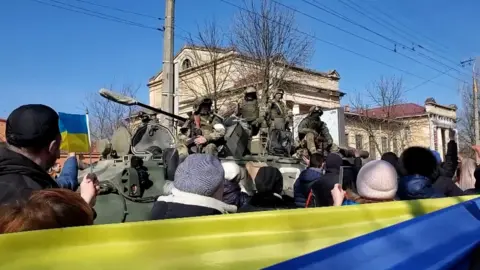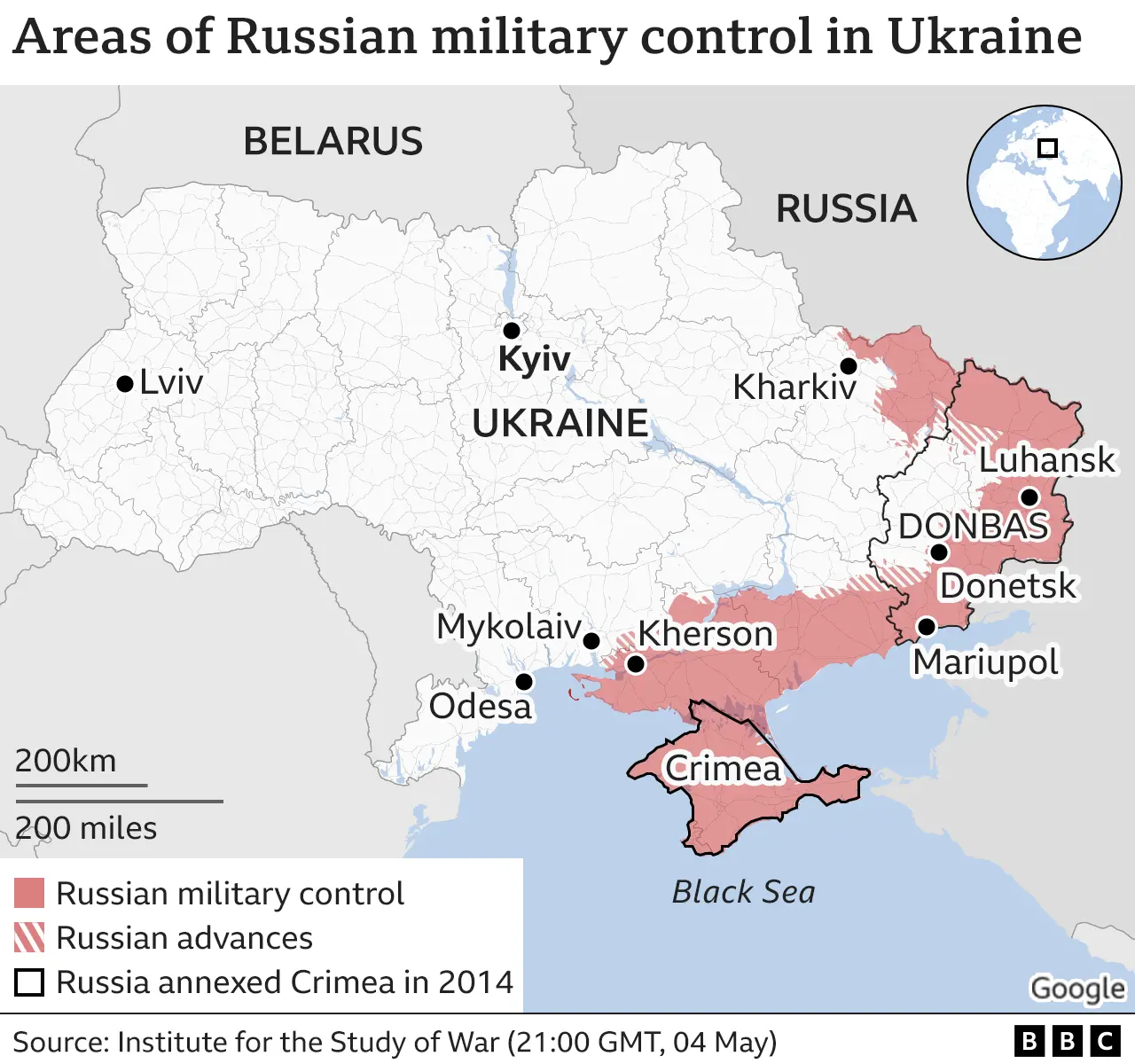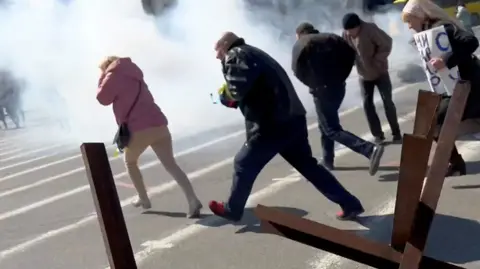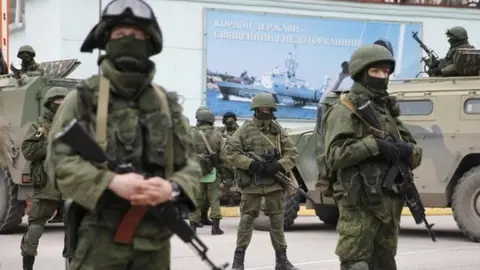Kherson: How is Russia imposing its rule in occupied Ukraine?
 BBC
BBCThe Moscow-imposed authorities in the southern city of Kherson - the first seized by Russian troops during the invasion - say they plan to ask President Vladimir Putin to formally annex the region to Russia.
The Kremlin responded that locals should decide their own fate - a view appearing to back up a warning from Ukraine that Russia may be planning to hold a referendum in the city, a vote Kyiv describes as illegal and a sham.
Russia is already introducing its own currency, media and internet services into Kherson - and other parts of Ukraine its army has occupied.
Why is Russia concentrating on Kherson?
Russian forces occupied Kherson in early March - one week after the invasion of Ukraine began.
It was the first major city to fall.
Before the invasion, it had a population of 290,000.
But, according to its former mayor, some 40% of residents have since fled the city.
If Russia aims to take southern Ukraine and establish a land bridge to Crimea, Kherson, at the mouth of the Dnieper River, on the Black Sea coast, will be key, the UK Ministry of Defence says.

What changes has Russia made in Kherson?
Russian military authorities dismissed Kherson's elected mayor from his post.
Ihor Kolykhaiev had "not been cooperating" with occupying forces, Russian state news agency Ria said.
In his place, a pro-Russian administration for the city and surrounding region has been installed.
Access to Ukrainian television channels has been blocked and internet service providers replaced with Russian ones.
Kherson's residents have been urged to listen to pro-Russian radio stations for their news.
Ukraine says Russia's goal is to "make their false propaganda an uncontested source of information".
 Reuters
ReutersThe new regional government is also phasing out Ukraine's currency, the hryvnia, and introducing the Russian rouble.
The four-month transition started on 1 May, with the authorities banning deliveries of Ukrainian money to banks.
Kherson residents have told BBC News the military authorities have started paying people's pensions in roubles.
But many are trying to find small ways to defy the Russian forces, including exchanging any roubles they receive back into hryvnia.
Does Russia plan to hold a referendum?
Ukraine President Volodymyr Zelensky has warned residents Russia aims to hold a "so-called referendum" in the Kherson region, on breaking from Ukraine and becoming a "people's republic".
He has advised people not to give the Russian authorities any personal data, such as passport numbers, as they might be used to falsify votes.
The UK Ministry of Defence said, in an intelligence update in April, a referendum would be a way for Russia to justify its occupation of Ukraine.
But Mr Kolykhaiev said it would be illegal since Kherson officially remains part of Ukraine.
And President Zelensky has said it fits in with Russia's plans of breaking Ukraine apart by creating "pseudo-republics" throughout the country.
In an apparent confirmation of the scenario on Wednesday, Kirill Stremousov, deputy head of Kherson's Moscow-installed administration, said: "There will be a request to make Kherson region a full subject of the Russian Federation."
Soon afterwards, Kremlin spokesman Dmitry Peskov said residents should decide their own future - and mentioned Crimea as an example.
How has Russia changed life in Ukraine's breakaway regions?
Moscow annexed Crimea in 2014, after a referendum declared invalid by the United Nations General Assembly.
It built a bridge between Crimea and southern Russia and moved in weapons, introduced the rouble and phased out the hryvnia.
And pro-Russian media is now dominant in the peninsula.
But the situation in Kherson is even closer to that in two regions of eastern Ukraine seized by Russian proxy forces shortly after Crimea was annexed.
The puppet leaders in the east created so-called people's republics, in Luhansk and Donetsk, where they also use the rouble and have given the population Russian passports.
In the schools, children are taught to a Russian curriculum.
And Ukraine complained to Moscow of the "Russification" of eastern Ukraine.
 Reuters
ReutersThere is no suggestion yet of annexing Kherson, just of creating a people's republic.
Similar votes in Luhansk and Donetsk, in May 2014, have been widely rejected as rigged and illegal.
But there is talk of Russia planning further referendums in the two regions, on annexing them to Russia.
Ukraine has made clear all fake votes will be null and void.
